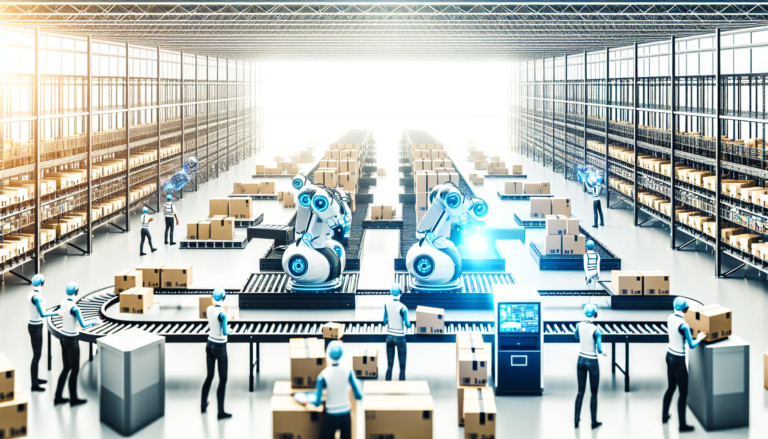Streamlining E-commerce Operations: The Game-changing Advantages of Modern ERP Systems
As the digital marketplace continues to expand, E-commerce companies are often faced with the challenging task of managing their operations across multiple distribution channels. The last thing an entrepreneur needs is a disjointed business process that could potentially lead to inefficiencies, errors, and revenue loss. The key to overcoming these hurdles lies in the incorporation of robust technologies such as Enterprise Resource Planning (ERP) systems into the business model.
ERP systems, especially those designed to accommodate the nuances of the E-commerce space – like Kentro, can deliver considerable benefits when implemented correctly. In this blog post, we will delve into some of the game-changing advantages these platforms offer, and why they are indispensable for today’s multi-channel E-commerce businesses.
1. Unified Multi-channel Order Management
One of the significant problems E-commerce businesses face is managing operations across multiple platforms. With orders coming in from various sources and the need for real-time updates, managing everything manually is not feasible. A comprehensive ERP system provides a centralized solution for multi-channel order management. Within such a system, all updates and changes reflect in real-time across all platforms, promoting coherence throughout the workflow.
2. Real-time Inventory Tracking
Keeping an accurate track of inventory is crucial for any business. In the world of E-commerce, where products live and sell in cyberspace, keeping up with real-time inventory changes can be a bit challenging. A modern ERP system provides real-time inventory tracking, thus ensuring you never miss a sale due to out-of-stock items and prevent overstocking, which can lead to unnecessary extra costs.
3. Supply Chain and Order Fulfillment Automation
Fulfilling orders and managing the supply chain can become a cumbrous task without the right set of automation tools. A comprehensive ERP system can help automate these processes, reducing the risks of errors, increasing efficiency and response times, and enhancing customer satisfaction. The automation provided by such systems extends across key aspects like purchasing, order management, logistics, and customer service.
4. Accurate Forecasting and Demand Planning
Most businesses struggle to accurately predict their inventory requirements. An ERP system can use historical sales data to generate accurate forecasts and demand plans. This predictive analysis helps businesses prepare for future demand, optimizing the supply chain and reducing the risk of overstocking or stock-outs.
5. Built-in B2B Online Store
With the growing trend of B2B E-commerce, having a built-in B2B online store provides companies with an additional revenue stream and a better way to connect with their wholesale customers. A modern ERP system provides a built-in online store that allows for wholesale self-checkouts, simplifying transactions, and making the process more efficient.
6. Accounting Automation
Automation doesn’t just enhance operational processes; it brings immense value to administrative tasks such as accounting. An ERP system automates various accounting tasks, providing accuracy and efficiency. It streamlines invoice generation, taxation, revenue tracking, and financial reporting, thus eliminating manual errors and saving valuable time.
ERP systems like Kentro.io have paved the way towards smarter, leaner, and more strategic E-commerce operations. By integrating these technologies into your business, you can rapidly address challenges, streamline your operations, and ultimately, increase your bottom line.
Today, any E-commerce operation aiming to remain competitive in this fast-paced market needs to understand the vital role that ERP systems play in achieving operational efficiency and business growth. This understanding is the first step to progress, growth, and profitability.


